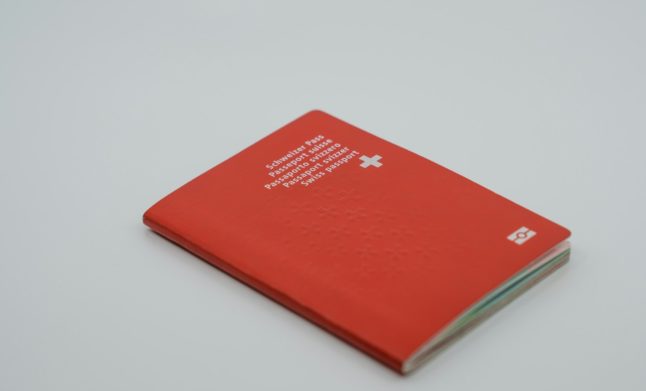You have waited a long time (more than a decade in most cases) to be able to apply for Swiss citizenship, so when you do, you may be eager to hasten the process.
The Swiss (and that includes the government) don’t like to be rushed, and that penchant for slow deliberations includes naturalisation procedures. The usual wait time from the moment you apply and receive your citizenship is typically between 12 months and two years.
Usually, the wait time is shorter for those applying for the fast-track naturalisation — for instance, people married to a Swiss citizen, or foreigners born in Switzerland — than for people going through the ‘regular’ process.
READ ALSO: Five ways you can fast-track your route to Swiss citizenship
Is there a way to make the process go faster?
You can’t jump the line or ask the cantonal or municipal authorities responsible for naturalisation procedures to hurry up.
In fact, such as a move could ‘red-flag’ you as a candidate unworthy of Swiss citizenship because impatience and not following the proper due course could be seen as lack of integration.
There are, however, ways to speed up the process in other ways.
You can do so by following the application instructions to the letter, that is, knowing what documents you need to submit with your application, and making sure you have all the required paperwork (read more about this below).
This is especially important if you apply in a canton with a high volume of citizenship applications, like Geneva, Vaud, and Zurich, because the wait there will be all that much longer if authorities inform you that such or such document is missing and you still need to send it in.
How should you apply to ensure the smoothest possible process?
This may sound evident, but many applicants may not know where to send in their application.
It should be submitted to authorities in your canton of residence.
What documents should you send in with your application?
All cantons require you to submit a copy of your C permit, and proof of language proficiency acquired from a registered language school in Switzerland.
Other requirements may vary from canton to canton, but they are also likely to include (as, for instance, in Geneva):
- An extract from the Swiss civil status register, not older than six months
- A certificate from the tax administration, dated less than three months;
- A certificate from the prosecution office, less than three months old;
- A certificate of successful completion of the test validating knowledge of history, geography, as well as Swiss and cantonal institutions.
It goes without saying that if you send in your application but one of the necessary documents is missing, then your application will be put on hold until you provide what’s needed. That will delay the whole process.
So it follows that the best way to ‘speed up’ the entire procedure is to practice the Swiss qualities or organisation and preparedness.
READ ALSO: When can I start counting my residency in Switzerland towards citizenship?



 Please whitelist us to continue reading.
Please whitelist us to continue reading.
Member comments